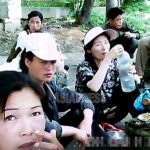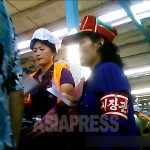◆The danger of emotional diplomacy
It was in 2004 that Japan established a legal basis for sanctions against North Korea. At the time, trade with Japan only represented about 10% of North Korea’s overall total. With this in mind, I argued that it was impossible to change North Korea's policy through economic sanctions and shared my belief that economic sanctions would be met with backlash from the Kim Jong-il regime, which would only hinder progress on the abduction issue. There were many who disagreed with me, however. While at a protest against the abductions, I was told by other participants that, “The victims’ families are angered by your remarks,” and was asked, “Are you siding with North Korea?”.
Firm statements of the victims’ families, calling for "resolution through pressure," were constantly reported in the media. Sadness and anger were, of course, natural responses to the abduction of a loved one, however, the family members were not experts in international politics. It was politicians who would be ultimately responsible for formulating a policy with the best chance of bringing the victims home.
While it is, of course, North Korea that is at fault for repeatedly giving insincere responses and insisting to Japan that “the abduction issue has been resolved”, the Japanese government cannot be excused for getting caught up in the ‘national sentiment’ of demanding pressure on North Korea instead of exploring the possibility of consultations. Emotions can quickly change. But it is not quite as easy to make changes to or withdraw from policies that have already been implemented. The reality of the situation for abductees could not have been improved through anger alone.
Last year, President Moon Jae-in and President Trump delivered a message from the Japanese government directly to Kim Jong-un, requesting a resolution of the abduction issue. Moreover, Prime Minister Shinzo Abe publicly mentioned many times that he would like to meet with Kim Jong-un. If a meeting is to happen, however, the Japanese government must first set a roadmap for consultations on the issues of abductions. In addition, an agenda for the talks must include settlements on: colonial rule, nuclear weapons and missiles, Japanese nationals remaining in North Korea (including the Japanese wives of North Korean men), and the return of Japanese remains.
Ms. Arimoto's mother, Kayoko, is 93 and her father, Akihiro, is 90. They, along with family members of the other 12 abductees, have been waiting for the return of their children for decades. With the parents of victims in their twilight years and, with many already having passed away, wasting time is no longer acceptable.
※This is an edited version of an article published in the January 22, 2019 issue of the Osaka Mainichi Newspaper.
 Editor’s notes on North Korean reporters
Editor’s notes on North Korean reporters
ALL REPORTS >>>
ARCHIVE(pdf) >>
DPRK MAP >>

























